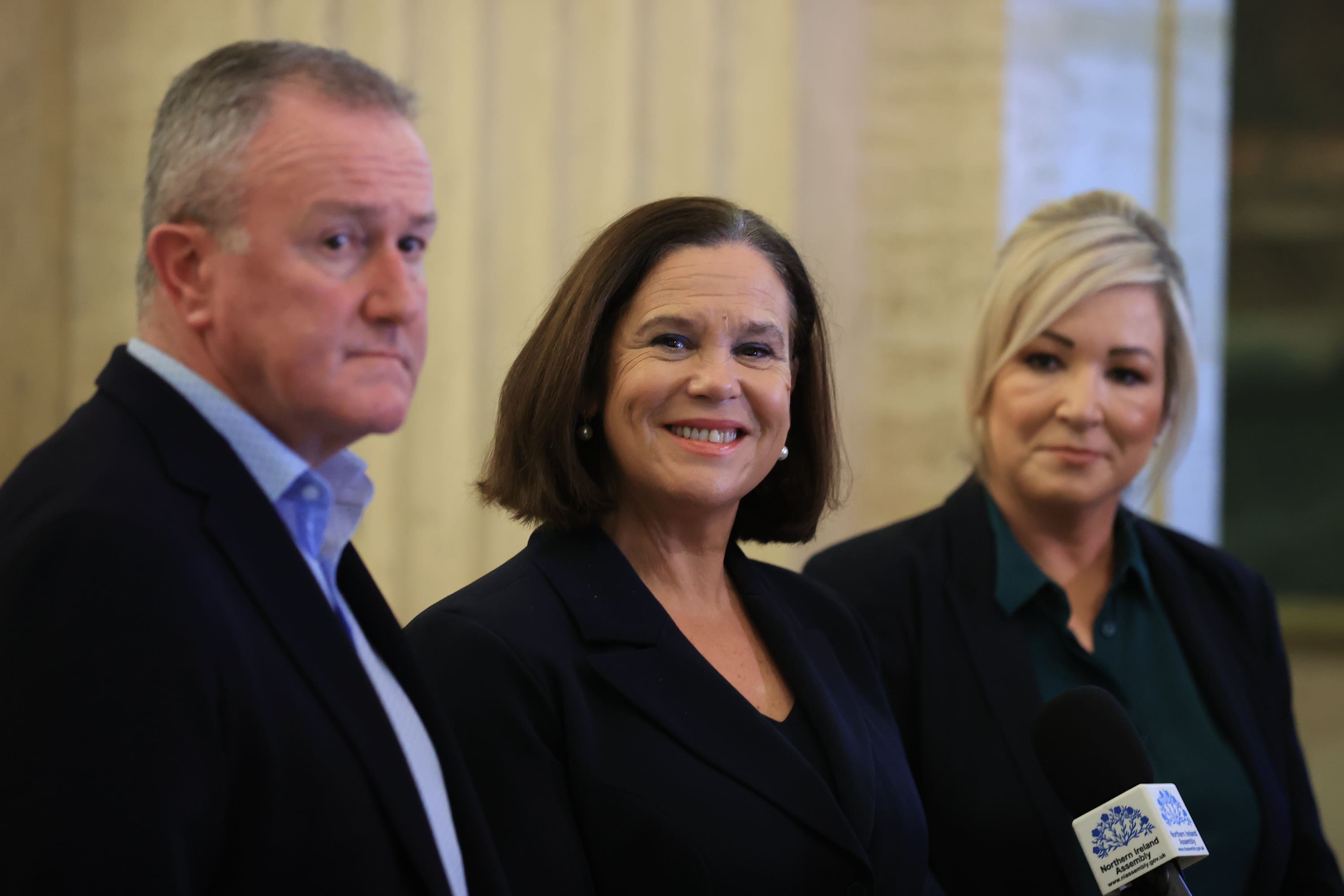First Sinn Fein first minister ‘shows Irish unity is within touching distance’
Mary Lou McDonald said the appointment of her party colleague Michelle O’Neill into the job would be a moment of ‘very great significance’.

Your support helps us to tell the story
From reproductive rights to climate change to Big Tech, The Independent is on the ground when the story is developing. Whether it's investigating the financials of Elon Musk's pro-Trump PAC or producing our latest documentary, 'The A Word', which shines a light on the American women fighting for reproductive rights, we know how important it is to parse out the facts from the messaging.
At such a critical moment in US history, we need reporters on the ground. Your donation allows us to keep sending journalists to speak to both sides of the story.
The Independent is trusted by Americans across the entire political spectrum. And unlike many other quality news outlets, we choose not to lock Americans out of our reporting and analysis with paywalls. We believe quality journalism should be available to everyone, paid for by those who can afford it.
Your support makes all the difference.Sinn Fein leader Mary Lou McDonald has claimed Irish unity is now within “touching distance” as she hailed the significance of her party assuming the role of Stormont first minister for the first time.
Ms McDonald said the expected appointment of her party colleague Michelle O’Neill into the job in the coming days would be a moment of “very great significance”.
Asked what Northern Ireland’s first ever nationalist first minister said about the potential for future constitutional change in the region, particularly when Ms McDonald could herself become taoiseach after the next general election in Ireland, the party president insisted the conversation about a “new Ireland” was gaining momentum.
She said Ms O’Neill’s elevation would be “a mark of the extent of change that has occurred in the north and indeed right across Ireland”.
Ms McDonald added: “Striving for the new Ireland isn’t some kind of dusty legal, constitutional matter, although it is that, it really is about us collectively having a conversation about what Ireland can look like and will look like in the next five years, 10 years, 20 years, for the next generations.
“And, for us, one of the challenges is to bring as many people as we possibly can into that conversation.
“And that has to include people of all religious perspectives and none, people of every class, colour, creed and, of course, it has to include those that define as unionist, as loyalist, as British.
“Because we are very clear the new Ireland will have within it British citizens, or ‘subjects’, whichever sits more comfortably with them.
“And that has to be part of the big societal dynamic and change.
I'm not naive, we are not naive. We know that there will be challenges and there will be forces that will push back against change
“So it’s very exciting, I feel very excited by that. I feel very optimistic for our future together.
“I’m not naive, we are not naive. We know that there will be challenges and there will be forces that will push back against change.
“But we are all about a changed Ireland and new Ireland for everybody.
“What’s more, I think that the turn of events, the historical turning of the wheel, and the electoral place that we’re at, I think signifies that what we talk about now is possible.
“As a matter of fact, in historic terms, it’s within touching distance. And I think that’s a very exciting thing.
“And I hope people will find that a very welcoming conversation, full of opportunity, and not defined by fear at all, ever.”
Ms O’Neill said the DUP’s pledge to return to powersharing in Northern Ireland had provided a “day of optimism”.
“I think the next number of days are going to be crucial to get us to the actual, real, live point where we actually go into that chamber and nominate first and deputy first ministers, put ministers into positions and let’s get down to business,” she said.